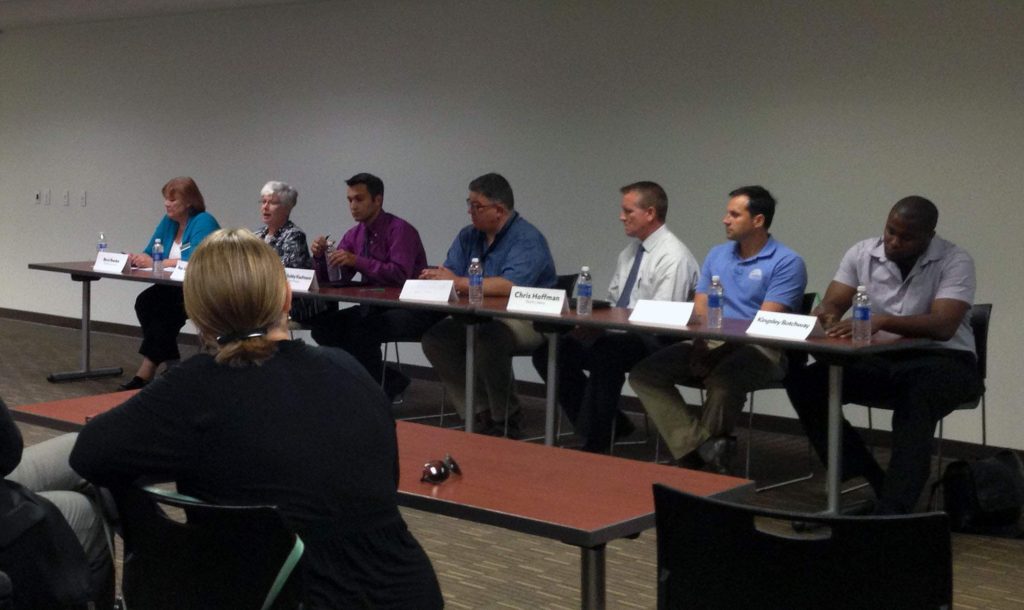While there was plenty to be learned at a Hunger Forum this week hosted by the Crisis Center of Johnson County, two of the most important thoughts elevated within the discussion were not limited to food security.
Johnson County Supervisor Rod Sullivan noted that if communities want more people to come forward and access available services, there needs to be a widespread effort not to bruise the dignity and pride of those in need.
“There is a stigma associated,” he explained, and immediately received mild pushback from another panelist.
While I may receive some similar pushback, let me say that I agree with Sullivan. Society cannot on one hand decry the people receiving state food assistance as incapable of making healthy food choices and, on the other hand, berate parents for not earning enough to provide for their children. To do so places vulnerable families in a constricted space with no escape hatch. T o put it another way, t hey are damned if they do and damned if they don’t.
Which brings up the point made at the forum by Iowa City Councilman Kingsley Botchway: there has to be a more collaborative effort on the part of all, and there must be space at that table for the people receiving the services provided.

“We have had too many times where other people are making the laws and the people affected weren’t given the opportunity to speak up,” he said.
Even well-intentioned laws and policies — verbiage that looks great on paper — have resulted in unintended consequences for those they are supposed to help. And too often society seeks the advice of those tasked with responding to at-risk populations instead of offering a seat to representatives of that group.
If we are to move forward with cost-effective solutions for seemingly overwhelming problems, all aspects of every community will need to make a real investment in collaboration.
Imagine if each organization in each community appointed spokespersons that agree to attend county and city government meetings. And, no, I’m not just talking Rotary and Kiwanis. I’m talking about the Black Voices Project hosted by Diversity Focus, the local neighborhood association and ladies who get together once a week to knit.
Government entities have made small strides toward inclusion, such as holding meetings around communities and encouraging interested citizens to serve on boards and commissions. Those are important opportunities to broaden knowledge and understanding thatshould be encouraged and amplified.
But, if you’ll excuse the Godfather reference, real power can’t be given; it must be taken.
Feeding America estimates there are about 19,000 people in Johnson County who are food insecure. The Iowa City Policy Project says Johnson County has one of the highest costs of living in the entire state.
It is time we start connecting the dots and listening to the people behind the statistics. If we do that not only will we overcome the stigma associated with accepting community help, but we will be able to plot a sustainable and beneficial way forward for our communities.
This column by Lynda Waddington originally published in The Gazette on July 5, 2014.
